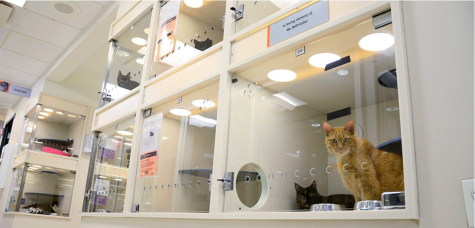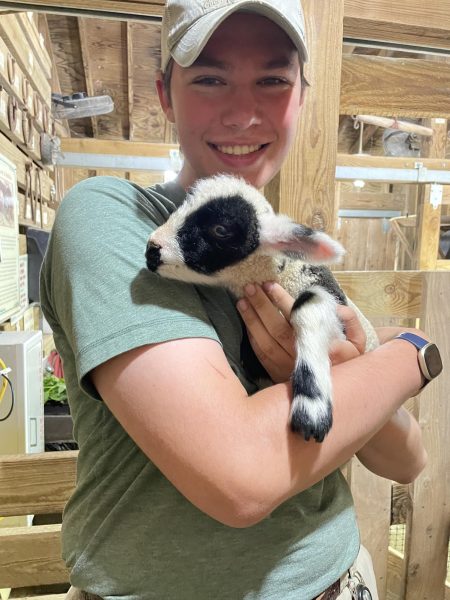Paws up! The Humane Society of Memphis combats animal homelessness
The number of stray animals in the United States outnumber homeless people by 500%. There are so many furry friends having to walk the streets day and night due to the lack of people willing to care for them.
Do you ever stop to think about what animals walking down the streets are going through or how you can help them? Are the pressures of schoolwork and busy schedules always an excuse to turn the other cheek? According to thedogvistor.com, roughly 70 million stray cats and dogs have to call the streets of the United States their home while only 6.3 million of them are estimated to be going into shelters every year. Although the number of animals going into shelters dropped from 7.2 million in 2011, approximately 920,000 animals are still euthanized yearly due to overcrowded shelters.
Luckily, about 4.1 million shelter animals are adopted each year and about 810,000 animals who entered shelters as strays were successfully returned to their owners.
“On one hand, it’s sad that so many animals don’t have a home and are looking for love, Morgan Johnson (11) said. “On the other hand, I’m glad that these animals are being put into shelters for at least some chance of finding a home and not wandering the streets.”
The Humane Society of Memphis and Shelby County is dedicated to rescuing and rehabilitating injured and abused animals, preventing animal cruelty and enriching the human experience through animal companionship. A vast majority of Memphians go to the Humane Society when adopting or surrendering pets.
“I believe that the best shelter in Memphis is the Humane Society,” Mira Gahlaut (11) said. “I like the fact that the Humane Society treats all animals without being cruel.”
The primary factor that causes people to choose the Humane Society is the way the animals are treated while in their care, especially compared to other shelters that offer a very dull and jail-like atmosphere with low amounts of socialization for the animals.
“I like the Humane Society because of the enrichment activities they offer the animals, so they’re not just sitting in cages all day and [because of] the human interaction they regularly get,” Johnson said.
The Humane Society reportedly takes in over 8,000 animals per year and never euthanizes their animals for space. In Memphis, they house about 100 animals at any given time while only being funded through donations from people in the community.
“Honestly, I think the Humane Society cares more about their pets in general compared to other shelters considering how I’ve been to [the Memphis Animal Shelter],” Amaya Green (10) said. “I believe the Humane [Society] does animals justice.”
The Humane Society is one of about eight popular animal shelters in Memphis. To many, this number is far too small to adequately service the stray animals of Memphis. Many shelters claim that they must euthanize some of their animals due to not enough space, so a common belief is that more shelters in Memphis would mean more animals could be saved from being euthanized.
“I think that there can never be enough animal shelters no matter where you are, ” Gahlaut said. “There are still so many stray pets out on the streets, and in a perfect world, all of them would have a home.”
Some may question that wages and funding might be at the heart of the problem. The average animal shelter worker in Memphis makes $9.50 an hour. It could be argued that with more funding animal shelters would have an easier time caring for the animals.
“I think Memphis shelters are working as hard as they can with all the funding that they have available,” Johnson said. “I don’t think there’s anything that the shelters themselves have to do better; I actually think Memphis as a community has to do more to support them.”
Sources:
Pet Statistics | Shelter Intake and Surrender | ASPCA
11 Facts About Animal Homelessness | DoSomething.org
Our Mission | Humane Society of Memphis & Shelby Co. (memphishumane.org)
thedogvisitor.com/how-many-homeless-dogs-are-in-canada
Your donation will support the student journalists of White Station High School. Your contribution will allow us to purchase equipment and cover our annual website hosting costs.











































